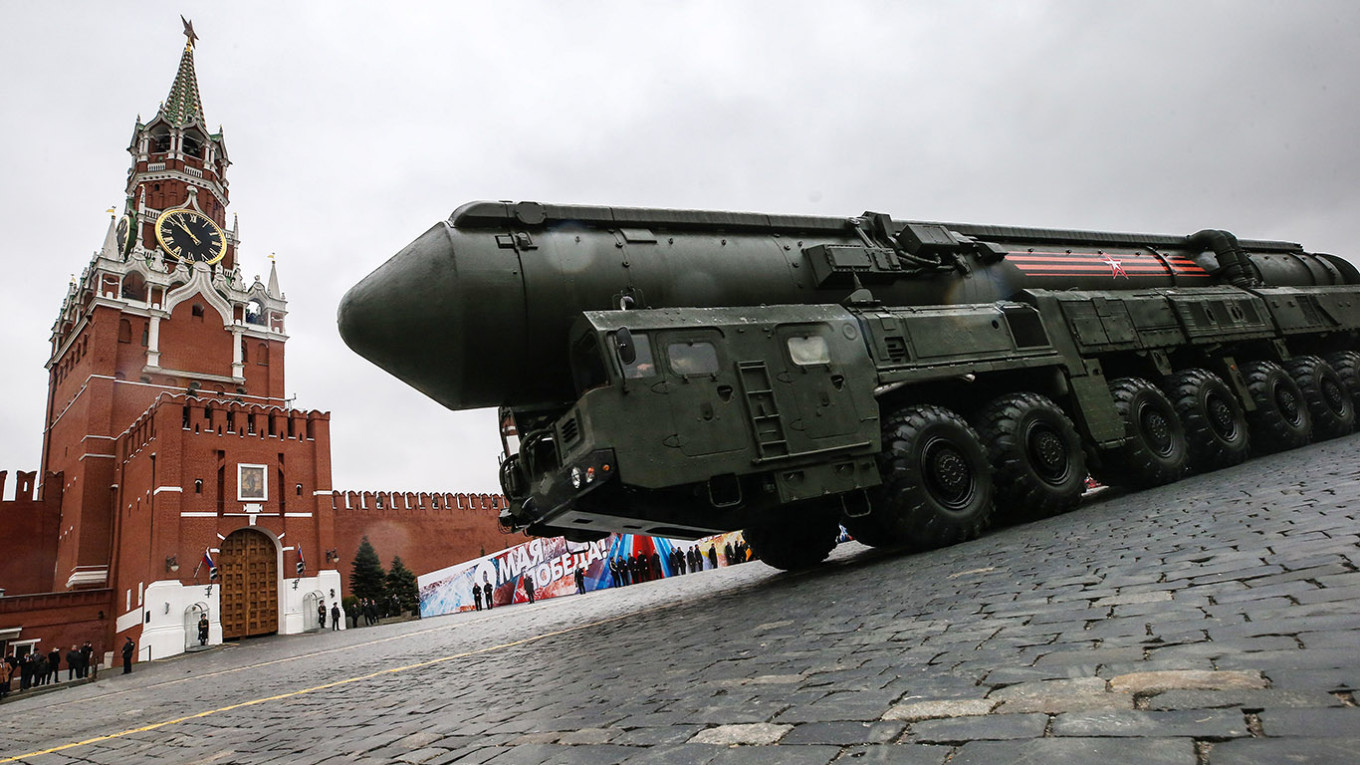In a statement on Sept. 25, Russian President Vladimir Putin announced a seemingly significant modification of Russia’s military doctrine. He revealed that Moscow would consider any “aggression” from a non-nuclear state supported by a nuclear power as a "joint attack” on Russia. Putin’s message to the West is simple: if you help Ukraine militarily, you may become Moscow's target.
Putin further specified that the new doctrine would "clearly set the conditions for Russia’s transition to usage of nuclear weapons." He warned darkly that such a possibility would be considered once Moscow received “reliable information” about weapons being launched across Russia’s borders. The president clarified that the forthcoming changes mean that Moscow “reserves the right” to use nuclear weapons not only in the event of aggression against Russia, but Belarus as well.
In comparison to his earlier threats, the novelty of this latest warning is less its outspokenness than the fact it concerns a forthcoming formal document. Despite this new fact, Putin’s recent announcements do not change the principles of Russia’s position. The changes to Russia’s military doctrine are as much a psychological operation by the Kremlin as its numerous previous attempts to intimidate Kyiv's allies with nuclear weapons.
As before, Moscow wants to scare away foreign supporters of Ukraine from continuing and extending their help. The new proposed change in the military doctrine is yet another attempt to circumscribe Western assistance to Ukraine.
One should put Putin’s statement in perspective, however. Russian official documents — whether laws, doctrines, treaties, or other governmental texts — have little meaning in a country with no rule of law and where the state behaves arbitrarily. In foreign and domestic affairs, the Kremlin makes decisions based on political preferences rather than on legal acts which can always be adapted or amended ad hoc.
Putin’s new announcements, as other threats by him and his entourage, are related to topical strategic debates within the West. One critical discussion is on the question of whether to provide Ukraine with more and better aerial weapons including the highly effective but, by now, infamous German Taurus cruise missile. Another debate concerns the issue of whether to permit Ukraine to use Western long-range weapons inside Russia. This appears to be of particular bother to the Kremlin.
Yet, these issues need to be seen in their historical context. Ukraine has attacked Russian military targets in the occupied Ukrainian territories of Crimea, Donetsk, Luhansk, Zaporizhzhia and Kherson for over two years. These five regions are, after the Russian illegal but official annexations of 2014 and 2022, regular Russian state territory according to the country’s amended constitution.
More recently, Ukraine has also attacked numerous military and industrial targets on Russia's internationally recognized territory. A drone even flew into the Kremlin itself. Impressively, Ukraine has managed to achieve impressive results and destroy large ammunition depots and oil processing plants deep inside Russia.
The existing Russian military doctrine already allows Moscow to use nuclear weapons in response to foreign attacks conducted with conventional weapons only. Ukraine’s massive hits on and intrusions into both illegitimate and legitimate Russian state territory since 2022 could have been interpreted, by the Kremlin, as permitting Moscow to retaliate with weapons of mass destruction.
Since 2010, Russia’s military doctrine has allowed it to do so in cases "of aggression against Russia with the use of conventional weapons when the very existence of the state is threatened." This peculiarity of Russia's nuclear doctrine allowing the use of atomic weapons in response to attacks with conventional armory was reaffirmed in the 2020 "Foundations of State Policy of the Russian Federation in the Area of Nuclear Deterrence.”
Accordingly, since 2014, Putin & Co. have repeatedly indicated their readiness to use nuclear weapons in response to Western-supported Ukrainian armed resistance to Russia's expansion into Ukraine with conventional weaponry. The phrase "very existence of the Russian state" could have been interpreted to mean the inviolability of its borders and airspace, including those of the annexed Ukrainian territories which Moscow claims as part of Russia. No wonder that Russian politicians and propagandists have been voicing nuclear threats against numerous countries every month since 2022.
Yet, no nuclear weapons have been used. That is because oral or written announcements on their use are not previews of genuine actions. They are part of a ruthless psychological warfare operation to subvert Ukraine’s self-defense. The recent changes to Russian military doctrine are part of this international PR game.
Moscow’s decision to use nuclear weapons would be guided less by official doctrine than by power-political considerations. If the Kremlin thinks using weapons of mass destruction would increase its power, it will do so. Such an action could have happened earlier and could happen in the future no matter the precise wording of Russia's official doctrine. Political utility rather than official legality, and strategic consideration rather than doctrinal obligation will make the Kremlin move in one direction or another.
This means that Russia is unlikely to attack a NATO member state for as long as Moscow believes in the seriousness of the alliance’s mutual defense pledge. It also means that Western and other states interested in avoiding Russia's use of weapons of mass destruction in Ukraine should make sure that the Kremlin does not think that it can get away with it. Thus, all governments around the world interested in preventing nuclear escalation in Eastern Europe should take a public stance.
They need to make clear to the Kremlin that further escalation of Moscow’s already genocidal attack on Ukraine will have serious consequences for Russia and its leadership. Putin threatens once more humankind that, if a country resists Russia’s conventional war of expansion and annihilation, Moscow will go nuclear. Everyone who disagrees and wants such a scenario never to be realized must give the Kremlin a clear and loud “No!”
A Message from The Moscow Times:
Dear readers,
We are facing unprecedented challenges. Russia's Prosecutor General's Office has designated The Moscow Times as an "undesirable" organization, criminalizing our work and putting our staff at risk of prosecution. This follows our earlier unjust labeling as a "foreign agent."
These actions are direct attempts to silence independent journalism in Russia. The authorities claim our work "discredits the decisions of the Russian leadership." We see things differently: we strive to provide accurate, unbiased reporting on Russia.
We, the journalists of The Moscow Times, refuse to be silenced. But to continue our work, we need your help.
Your support, no matter how small, makes a world of difference. If you can, please support us monthly starting from just $2. It's quick to set up, and every contribution makes a significant impact.
By supporting The Moscow Times, you're defending open, independent journalism in the face of repression. Thank you for standing with us.
Remind me later.








